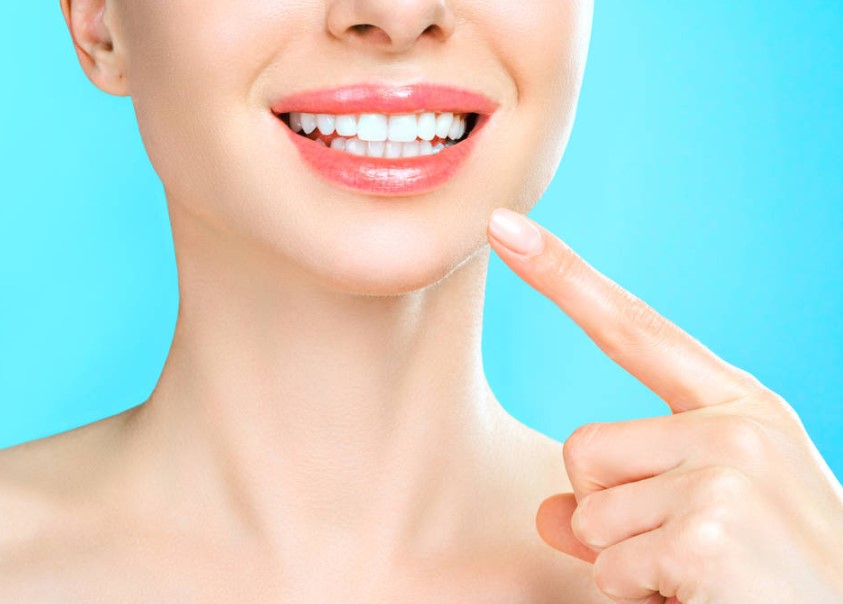Dental veneers are thin, custom-made shells of tooth-colored materials that are designed to cover the front surface of teeth. They are used to improve the appearance of teeth that are discolored, stained, chipped, or misshapen. Dental veneers can be made of porcelain or composite resin and are bonded to the teeth using a special dental adhesive.
Maintaining your dental veneers is crucial to ensure their longevity and your overall oral health. This article will provide tips on how to maintain your dental veneers for a long-lasting smile.
Key Takeaways:
- Proper oral hygiene, including brushing, flossing, and using mouthwash, is essential for maintaining dental veneers.
- Regular dental check-ups can help detect and address potential problems with dental veneers.
- Protecting dental veneers from damage, including wearing a mouthguard and avoiding chewing on hard objects, is important for their longevity.
- Promptly addressing any problems with dental veneers, such as cracks or chips, can prevent further damage.
- Dental veneers can last anywhere from 7 to 20 years with proper maintenance.
- Dental veneers cannot be whitened with traditional teeth whitening methods and may need to be replaced if they become discolored.
- Dental veneers are designed to be comfortable and should not cause any pain or discomfort.
- The cost of dental veneers varies depending on several factors and can range from $800 to $2,500 per tooth.

Proper oral hygiene for dental veneers
Proper oral hygiene is essential to maintaining your dental veneers. Brushing your teeth twice a day with a non-abrasive toothpaste is important for removing plaque and keeping your teeth clean. Use a soft-bristled toothbrush to avoid damaging your veneers.
Flossing daily is also necessary for removing food particles and plaque from between your teeth and your veneers. Floss gently and avoid snapping the floss against your veneers.
Using a mouthwash can also help keep your mouth clean and fresh. However, avoid using a mouthwash that contains alcohol, as it can damage the bonding agent that holds your veneers in place.
Avoid consuming foods and drinks that can stain your veneers, such as coffee, tea, red wine, and berries. If you do consume these foods, rinse your mouth with water afterward.
Regular dental check-ups
Regular dental check-ups are crucial to maintaining your dental veneers. Dentists can detect any potential problems with your veneers and address them before they become more serious.
The frequency of dental check-ups will depend on your individual needs and the recommendations of your dentist. However, it is generally recommended that you visit your dentist every six months for a check-up and cleaning.
During a dental check-up, your dentist will examine your veneers and make sure they are still securely bonded to your teeth. They will also clean your teeth and remove any plaque or tartar buildup.
Protecting dental veneers from damage
Protecting your dental veneers from damage is essential to their longevity. Wearing a mouthguard when participating in sports or other physical activities can help prevent damage to your veneers.
Avoid chewing on hard objects such as ice, pencils, or fingernails, as they can cause chips or cracks in your veneers. If you grind your teeth at night, talk to your dentist about getting a custom-made night guard to protect your veneers.
If you wear oral appliances such as retainers or mouthguards, make sure to properly care for them to prevent damage to your veneers. Clean them regularly and store them in a safe place when not in use.
Addressing dental veneer problems
If you experience any problems with your dental veneers, it is important to address them as soon as possible to prevent further damage.
If you notice a crack or chip in your veneer, contact your dentist immediately. They can assess the damage and determine the best course of action, which may involve repairing or replacing the veneer.
Discoloration of dental veneers can occur over time, especially if they are exposed to staining agents such as tobacco or coffee. Your dentist may recommend professional teeth whitening or replacement of the veneers if the discoloration is severe.
If you notice that one of your veneers feels loose or has come off, contact your dentist right away. Do not attempt to reattach the veneer yourself, as this can cause further damage to your tooth.
Conclusion
Maintaining your dental veneers is crucial to ensuring their longevity and your overall oral health. Proper oral hygiene, regular dental check-ups, protecting your veneers from damage, and addressing any problems promptly are all important for maintaining your beautiful smile.
By following the tips outlined in this article, you can help ensure that your dental veneers last as long as possible and continue to enhance your smile for years to come.
FAQs
How long do dental veneers last?
Dental veneers can last anywhere from 7 to 20 years, depending on how well they are maintained and how well they are bonded to your teeth.
Can dental veneers be replaced if they are damaged?
Yes, dental veneers can be replaced if they are damaged or if they no longer fit properly.
Can dental veneers be whitened?
No, dental veneers cannot be whitened with traditional teeth whitening methods. If your veneers become discolored, your dentist may recommend replacing them.
Are dental veneers comfortable to wear?
Yes, dental veneers are designed to be comfortable and should not cause any pain or discomfort.
How much do dental veneers cost?
The cost of dental veneers varies depending on several factors, including the material used, the location of the dental practice, and the number of veneers needed. On average, dental veneers can cost anywhere from $800 to $2,500 per tooth.